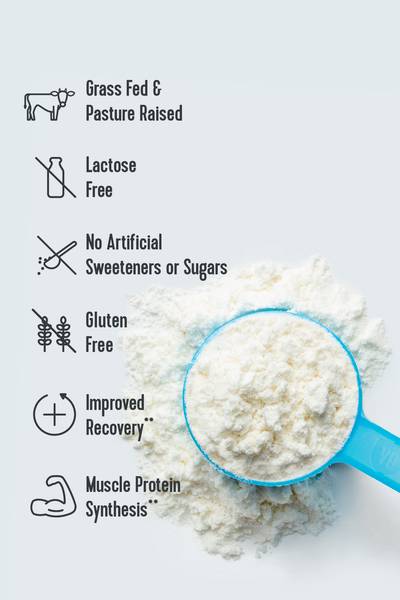Whether you've been working out for years, or you've just gotten into a routine, at some point you've probably found yourself wondering, "How often should I work out?" (We get it — sometimes the couch is calling you to skip the gym and watch Netflix instead.)
The answer is: it depends. While you should definitely add rest days into your weekly training plan no matter your fitness level, how often you work out each week depends on your goals, your schedule and the type of workout you're doing.
Whether it's walking the dog, squeezing in a quick HIIT workout, or training for a marathon, any movement you do is beneficial to your health. Short on time? We've got you covered with HIIT workouts that fit any schedule. So, how many days should you really work out? Read on for the 411.
Vital note: This article has been made available for informational and educational purposes only. It is not intended to be a substitute for professional medical advice, diagnosis, or treatment. Always seek the advice of your physician or another qualified health provider with any questions you may have regarding a medical condition. Your licensed healthcare professional can best provide you with the diagnosis and treatment of any medical condition and assist you as well in deciding whether a dietary supplement will be a helpful addition to your regimen.

So, How Many Days Should I Work Out?
Before you know definitively how often you need to work out, it's a good idea to be realistic about the type of workouts you’re doing and what your end goal is.
"If you're doing full-body workouts, then you'll only perform two to three workouts per week," says Jamie Hickey, nutritionist and Founder of Truism Fitness. "If you're only working one or two muscle groups a day with strength training, then you'll need to work out five times a week."
So, if HIIT is your workout of choice, your week might look like three 30-minute HIIT workouts per week, one 20-minute run, one yoga session, one long walk and one rest day.
If you're focusing on strength-training, your week might include an upper-body workout focusing on chest and back, a lower-body workout focusing on legs and glutes, an upper body focusing on biceps and triceps, a cardio day, and a rest and recovery day.
How long should I work out each day?
The Center For Disease Control (CDC) recommends 150 minutes of moderate exercise a week, which sounds like a lot, but it becomes manageable when you consider that that's just 30 minutes a day, five days a week, and you don't need to do it all at once. You could go on three 10-minute walks every week day, for example, and still meet that goal.
If you opt for more vigorous exercise (like a fast run or an intense HIIT class) CDC guidance suggests that you only need 75 minutes of intense exercise a week.
The CDC and American Heart Association (AHA) also add that it's important to do both aerobic and strength training exercises for optimal health. Keep in mind, this number is just a guideline for you to follow to keep yourself healthy and active. However, depending on your goals, but you may need to go above and beyond to see gains. "If you go too long in between workouts, it can hinder your progress in the long run,” Hickey says.
How often should I work out to lose weight?
If your goal is to lose weight, you have to remember that both your workouts and your diet play a role. And, you should always check with your doctor before starting any exercise or diet regimen.
If weight loss is your primary goal of working out, you'll need to include both cardio and strength training, but how much you do of each depends on your fitness levels. You may want to opt for a near daily workout, but be sure to give your body time to recover, slowing down and including walks or yoga on your workout schedule.
"If you're trying to lose weight then you need to make sure you're on a calorie deficit and the workout for that day is going to help you burn the calories you need for that particular day," Hickey says.

Do I Need A Rest Day?
We know the importance of daily exercise, so it can seem counterintuitive to take a rest day, but if you even have to ask this question, chances are you definitely need one. Rest days are just as important to your health as exercise.
Rest days are absolutely needed, especially when you're strength training. Yourmuscles repair themselves during rest, according to the American Counsel On Exercise (ACE). "If you're training every day, you'll limit the growth of muscle mass and you'll increase the chance of becoming injured," Hickey tells Lively.
So, if you're feeling sore or tired, give yourself some grace and take the rest day; you can still move your body by stretching or going for a casual walk.
And if you're super sore, you may need two rest days in a row. "If you're experiencing soreness that is so dramatic that it is preventing you from working out, it is either because you're new to exercising and in this case you may need to take an extra day off," Hickey says, adding that if you're feeling very sore after working out regularly, you may be misdiagnosing soreness for an actual injury.
If you have soreness that doesn't go away, or is worse than what you're used to experiencing post-workout, you should take a break and check in with your doctor.
Should I Work Out If I'm Sick?
Maybe you have a mild cold or bit of a headache— it's not enough for you to take off from work, so do you take off from working out when you're sick? The short answer is yes; it's always better to rest when you're feeling under the weather.
If it's just the sniffles, doing some light exercise can still be okay, but you might want to take it easy. This depends on your body as well.
"I always tell my clients that they should not work out if they're sick, even if it's only mild. When you work out, you're causing your body stress (even if it's healthy stress)."
The virus that your body is trying to fend off is also causing your body to undo stresses and the combination can cause you to become tired, dehydrated and lose vitamins.
"All of this can weaken your immune system," says Hickey. It's best to take the day off, rest, hydrate and go to bed early, then come back to your workout feeling your best.















